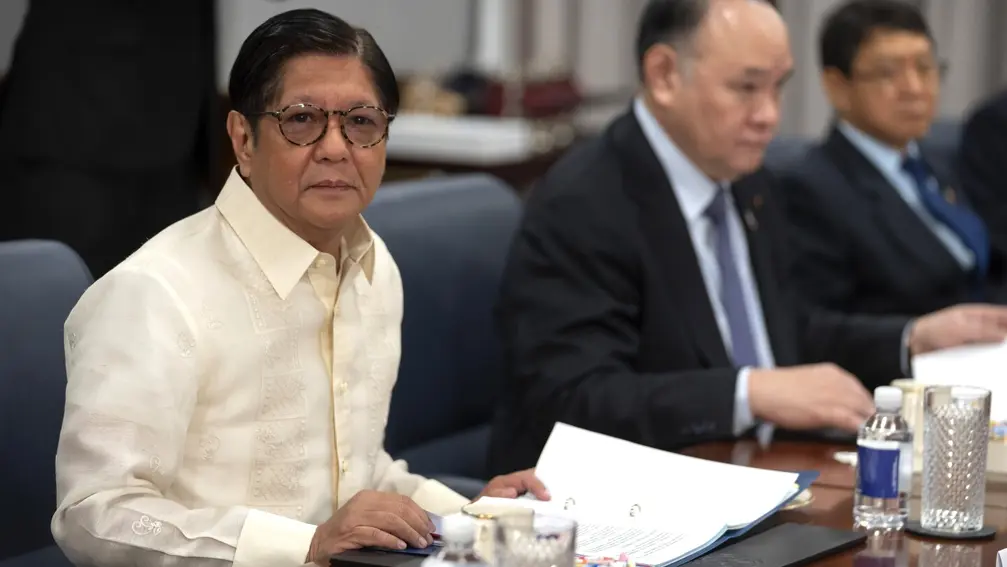T4K3.news
National Guard may be armed in Washington
The Guard in DC may be armed as part of a federal policing surge, drawing civil liberties concerns and questions about authority.
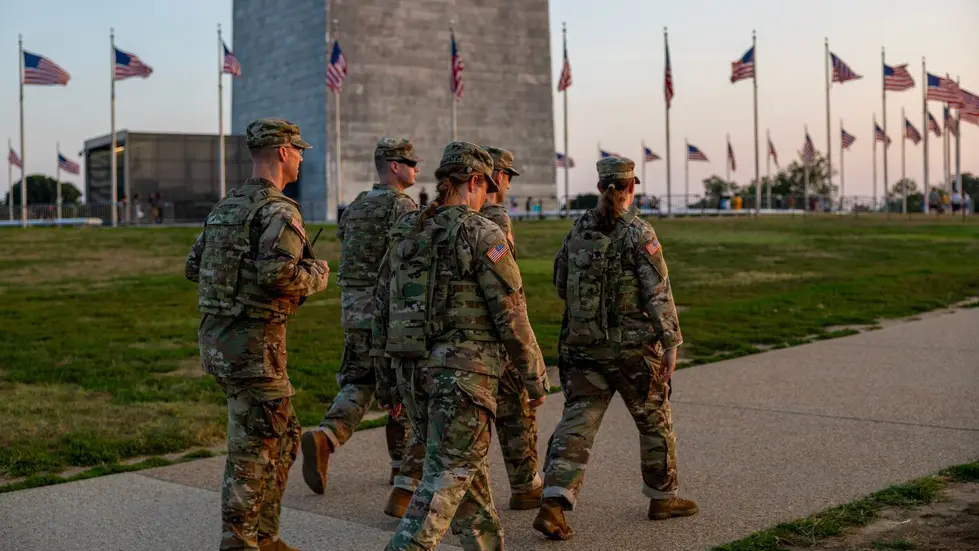
The deployment in the capital raises questions about federal policing power, civil liberties, and how the city will respond.
National Guard may be armed in Washington
The National Guard in Washington, D.C. may be armed as part of the federal policing surge ordered by the White House. Earlier the Army said weapons would stay in the armory and guardsmen would not make arrests, but a Guard spokesperson later said troops may be armed consistent with their mission and training. The troops are described as a visible deterrent, not an active policing force, and would rely on protective equipment as needed. The Posse Comitatus Act limits federal military involvement in civilian law enforcement, but National Guard units deployed to cities can carry weapons under certain conditions.
The move has drawn opposition from local officials and residents who view the expansion of federal enforcement as an overreach. Washington Mayor Muriel Bowser noted the city’s limited self-government is under stress, while hundreds demonstrated against the crackdown. Supporters, including Republican governors, argue the increased presence fights crime and fulfills a campaign promise. Crime data cited by officials show violent crime in the city down 26% from last year, complicating the justification for a heavy-handed federal rollout.
Key Takeaways
"I think we have learned lessons from the past, I think we are well equipped to handle this moment."
Rev Ronald Bell Jr., pastor at Asbury United Methodist Church, comments on lessons from unrest and the current approach.
"I think what we're seeing is the effort to habituate people to the idea that you're going to have armed federal personnel in your business, asking questions, stopping you, and that's just truly scary."
Rosa Brooks, Georgetown Law School professor, expresses concern about normalization of armed federal presence.
"President Trump's bold leadership is quickly making our nation's capital safer in less than ten days, over 300 dangerous criminals have already been arrested and taken off the streets of Washington, D.C."
White House spokesperson Taylor Rogers defending the policy.
"Limited self-government has never faced the type of test we are facing right now."
Mayor Muriel Bowser describing the city's political strain.
This moment signals a broader shift toward a more prominent federal role in urban policing. The shift risks normalizing armed federal personnel on civilian streets and blurring lines between local governance and national authority. Public trust could hinge on clear rules about when force is used and how civilians are treated. The debate also tests the administration’s storytelling about safety versus civil liberties, especially as crime figures present a mixed picture that may undercut harsh rhetoric. The political stakes are high for policymakers as independent voices push back against what many see as overreach while supporters frame it as necessary order.
Highlights
- Visible force does not equal safe streets.
- Local voices deserve a say in federal policing moves.
- This moment tests trust between residents and government.
- Armed agents on city streets feel intimidating more than protective.
Political and civil liberties implications of federal policing in DC
The deployment raises concerns about civil rights, local autonomy, and the boundaries of federal authority. The use of armed forces in civilian spaces risks escalation and public backlash while testing the balance of power between city governance and federal action.
The situation will test how security measures align with civic rights in the long run.
Enjoyed this? Let your friends know!
Related News
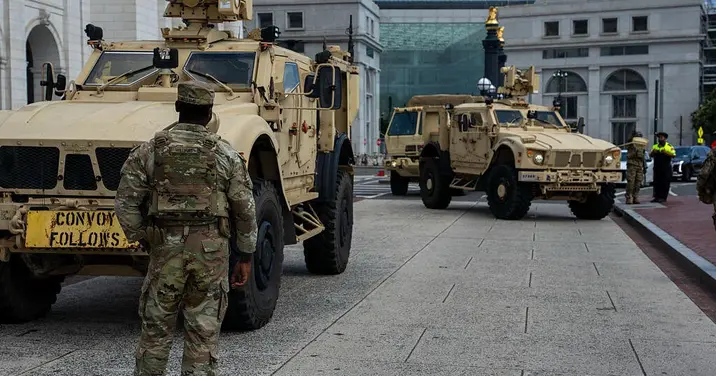
Armed National Guard Arrives in DC
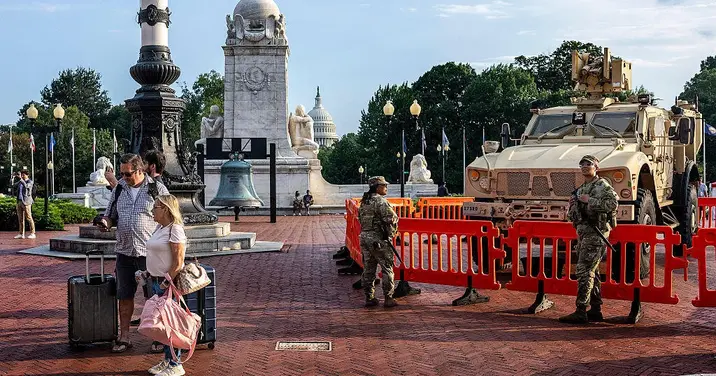
National Guard deployments to DC
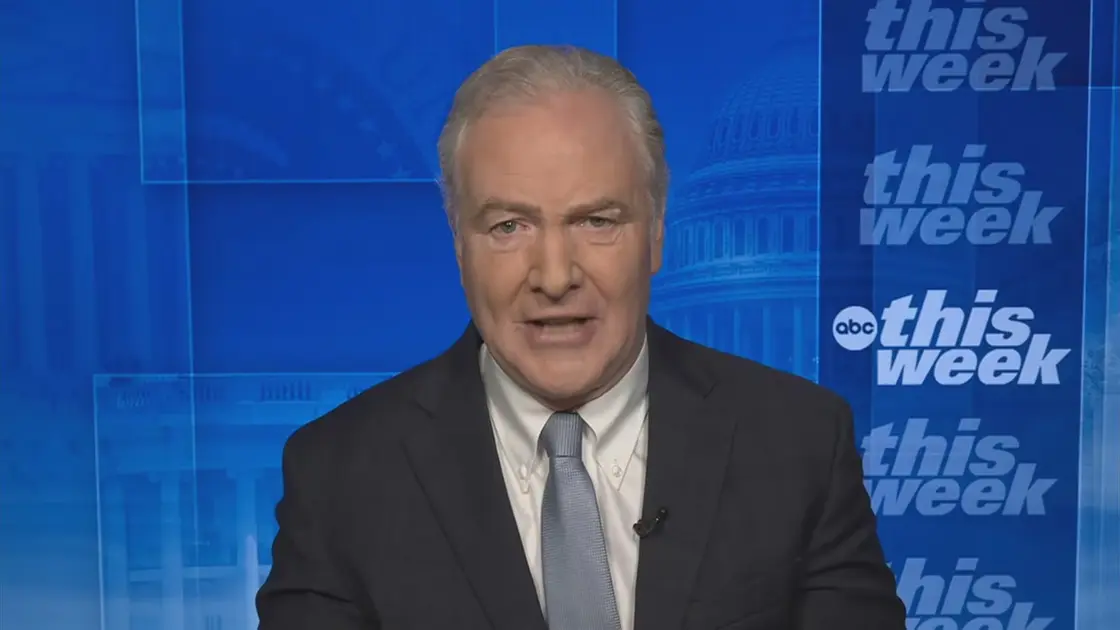
National Guard deployment in DC
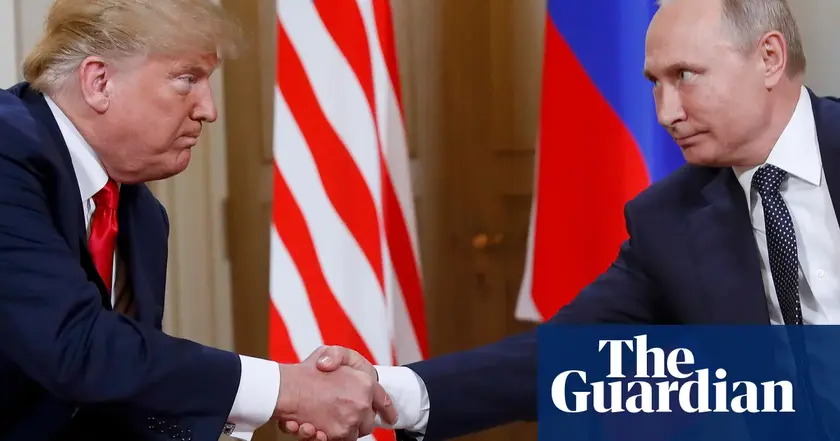
Alaska Talks Bring Kremlin Old Guard and New Money
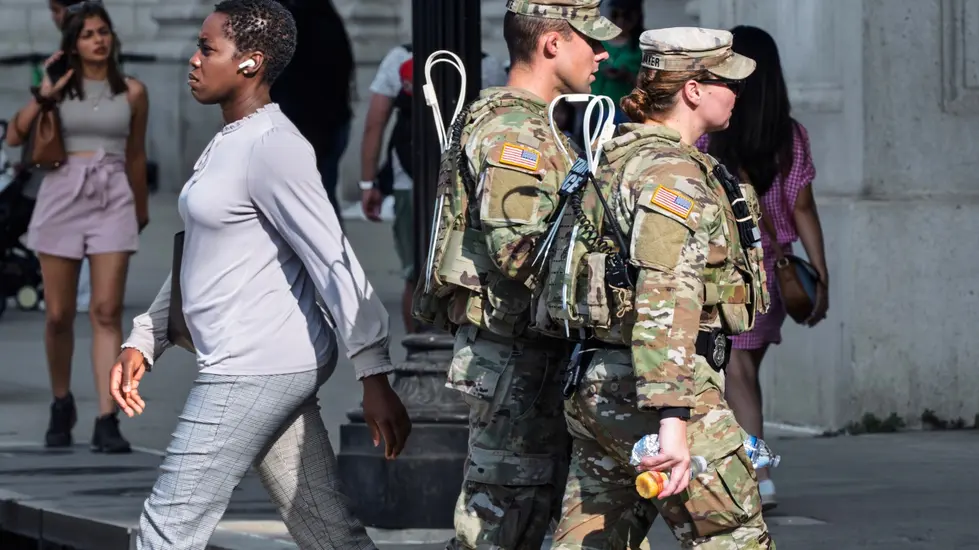
Federal police powers take hold in DC
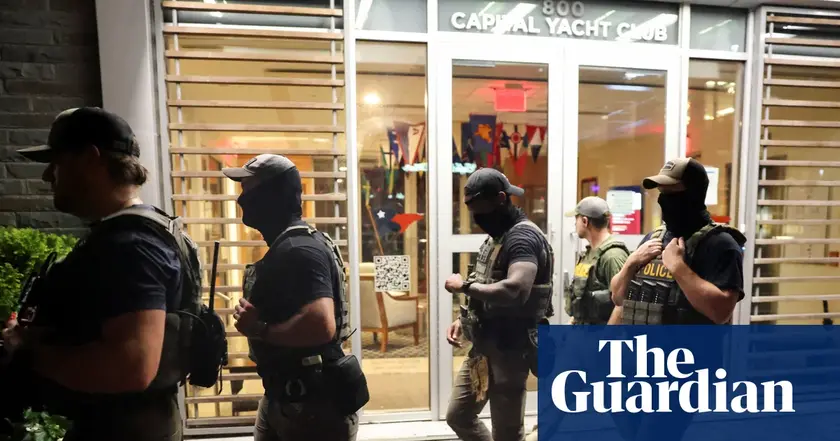
Federal force deployed in DC draws backlash
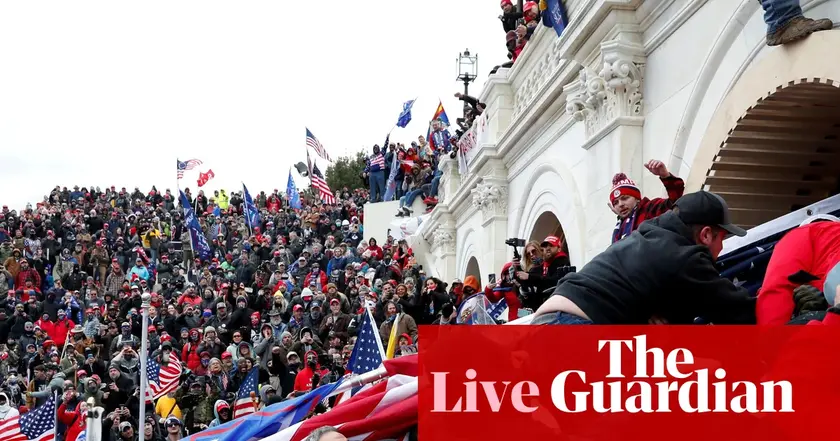
Capitol presence links Trump pick to January 6

Patriots win preseason opener
